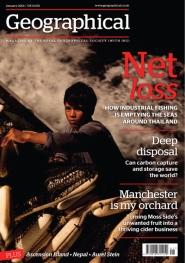题目内容
阅读下面短文,根据所读内容在表格中的空白处填入恰当的单词。
注意:每个空格只填一个单词。
For years, researchers have looked into a possible relationship between heat and violence. There are conflicting results over whether there is an actual connection between rising anger and rising temperature, but the murder rate constantly increases during the months of July and August, according to the FBI’s annual crime report.
Many police chiefs say they put more policemen on the streets when the heat rises. “Calls for service always increase from May, June, July and August,” said New Bedford’s Captain Richard Spiriet. “The longer period of time you have the heat, the worse it is. It’s just the opposite in the winter time.”
Craig Anderson, a professor and specialist in social psychology at Lowa State University, argues the evidence is clear. “As the temperature goes up, people become more uncomfortable. They become easier to get angry,” he said. “That increases the possibility that a small conflict will be interpreted as more major.” Anderson conducted a couple of studies looking at crime rates over the course of several years within the same area to see when most violent crimes occurred. He found that violent crimes were more likely to occur on hot days and hot months - even hot years had higher violent rates than cold years, according to his research.
Other research shows it is not so much the physical climate, but rather the social climate, that causes increased violence. “During the summer months, people stay up later. They talk with their neighbors. They party with their friends,” said Jack Levin, director of the Brudnick Centre on Violence at Northeastern University. “There are more likely to be large numbers of people interacting, and they are more likely to argue.”
Perhaps the realization that there is a link will help people in an argument step back and say, “Let’s cool off” - both literally (字面上地) and figuratively (比喻地).
Title | Heat and Violence |
Theme | Violence possibly has a1. ___________ with heat. |
Facts | ☆July and August witness the2. ____________ increase of murder rate. ☆More policemen are called in with the heat3. ____________. ☆People get angry more4. ____________ as the temperature goes up. |
5. __________ of the research | ☆Fewer violent crimes occur on6. ____________ days. ☆The7.____________ climate causes increased violence. ☆People usually go to8.____________ later during the summer months. ☆There are more likely to be9.____________ when people chat with each other. |
Conclusion | 10.____________the link will help people in an argument cool off. |
1.connection / relationship/ relation/ link
2.constant
3.rising/rise
4.easily
5.Findings/ Results
6.cold/ winter
7.social
8.sleep/ bed
9.arguments
10.Realising/ Realizing
【解析】
试题分析:文章介绍暴力犯罪和天气热是有关系的,大热天的暴力犯罪比寒冷的日子多,还有社交活动也影响了暴力犯罪,了解这些关联可以有效防止暴力犯罪的发生。
1.
2.
3.
4.
5.
6.
7.
8.
9.
10.
考点:考查任务型阅读


 D. sounds
D. sounds